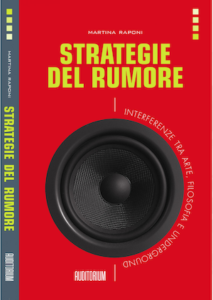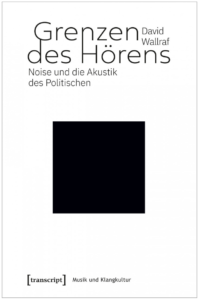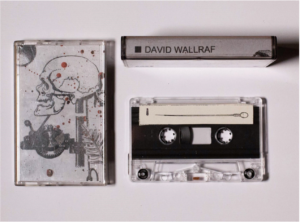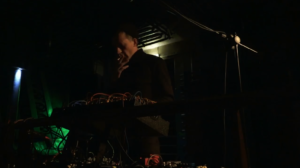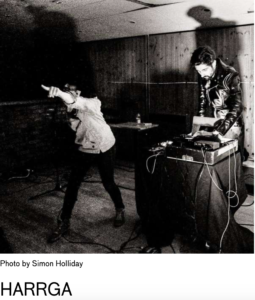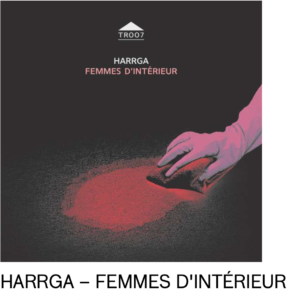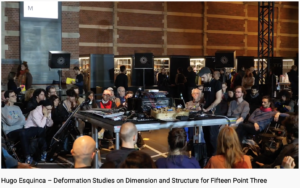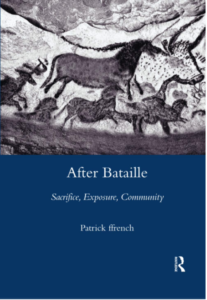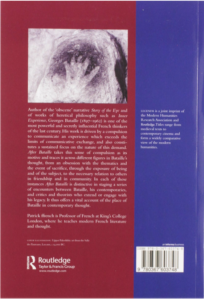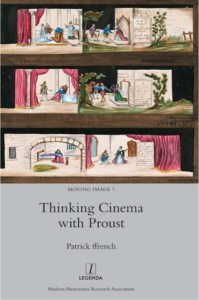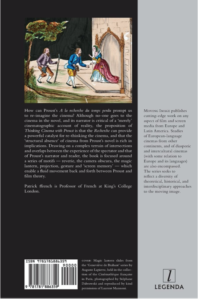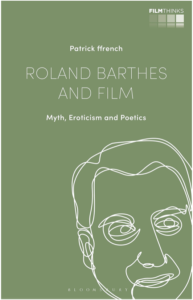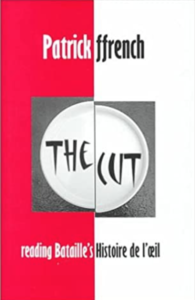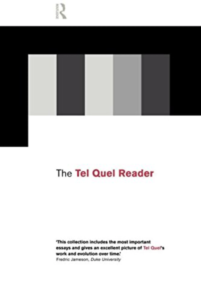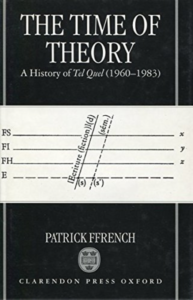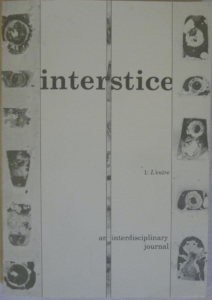Monthly seminar, October 2020 to June 2021.
This semester the Collège International de Philosophie & King’s College London will continue the seminar on the aesthetics of noise with talks and conversations between philosophers, theoreticians and noisers. Re-evaluating the boundaries of aesthetics at the intersection of philosophy, digital culture and artistic practices, the seminar series explores how noise partakes in sense data (aísthēsis) and how it impacts on our understanding of the subject of experience, in its technologically expanded dimension. As Fischer Black remarked in the context of finance: noise is what makes it difficult to test theories, it clouds our vision and forces us ‘to act largely in the dark’. (Black, 1986) Far from indexing a mere margin of error or simple disturbance, the notion of noise has become a rallying point for contemporary reflection, stretching and renewing the aesthetic dimension of philosophy.
This seminar is a collaboration of the College International de Philosophie, Paris and King’s College London: Department of Digital Humanities, Department of French and the Centre for Philosophy and the Visual Arts. Organisers: Cécile Malaspina, directeur de programme, Collège International de College International de Philosophie, Paris; with the support of Mark Coté, Senior Lecturer in Digital Cultures, Director MA Big Data, Culture and Society; Patrick ffrench, Professor of French and Vice Dean (Research) at King’s College; and in association with Sacha Golob, Senior Lecturer in Philosophy, Director of the Centre for Philosophy and the Visual Arts.
Info: cecile.malaspina@kcl.ac.uk
RECORDINGS OF PREVIOUS SESSIONS WILL BE UPLOADED HERE:
https://www.youtube.com/channel/UCM6eQVydoPzPcTT2YYRFezg/videos
Speakers and respondents: AN AESTHETICS OF NOISE 2020-2021
Past seminar sessions
Thursday 24 June 2021
Michael Goddard: The So-Called Groups of Militant Insanity Against the Video Police: Anti-Psychiatry and Noise in 1970s Italian Audiovisual Media
Respondent Laurence Kent
This talk will explore how anti-psychiatry was taken up both in the Radio Alice free radio station and also cinematic culture in Italy in the 1970s, focusing on the work of Marco Bellocchio, Elio Petri, and especially Alberto Grifi. While Grifi’s work Anna (Grifi and Sarchielli, 1975) is a relatively well-known anti-psychiatric video experiment, anti-psychiatry runs through his 1970s work in proximity with the creative autonomia movement that also gave rise to Radio Alice. However, these currents were already present in key works of Bellocchio and Petri, especially in Fists in the Pocket (Bellocchio, 1965), Matti da slegare (Fit to be Untied, 1975) and La classe operaia va in paradiso (Petri, 1971). In the latter noise is especially significant to indicate the inter-relations between class struggle, sexuality and psychic and emotional states and this would also form the basis for Radio Alice’s reinvention of radio as a delirious machinery for a militant destabilisation of the state, capital and the mass media. If this militant insanity lost out in the end to the video police in the form of both mass arrests and the rise of Berlusconi’s media empire, it provides a rich legacy for 21st century reinvention.
Dr Michael N. Goddard, is Reader in Film, Television and Moving Image at the University of Westminster. He has published widely on international cinema and audiovisual culture as well as cultural and media theory. In media theory, his most significant contribution is the monograph, Guerrilla Networks (2018), the culmination of his media archaeological research to date, which was published by Amsterdam University Press. His previous book, Impossible Cartographies (2013) was on the cinema of Raúl Ruiz. He has also been doing research on the fringes of popular music focusing on groups such as The Fall, Throbbing Gristle and Laibach and culminating in editing two books on noise, Reverberations (2012) and Resonances (2013). He is currently working on a book on the British post-industrial group Coil and was recently appointed Director of Research Development in Transmedia, Music and Performance in the CREAM research centre at the University of Westminster. More information on his research is available at:
https://cream.ac.uk/people/michael-goddard/
Laurence Kent is an Assistant Lecturer at the London College of Communication, University of the Arts London. He has recently completed his PhD in the Film Studies department of King’s College London, exploring the metaphysics of Gilles Deleuze’s cinematic philosophy. Through this, Laurence utilised the concept of noise in order to extend and reorient a Deleuzian approach to digital cinema, and he subsequently published an analysis of the Transformers (2007-) series in relation to epistemological noise through Frame Cinema Journal. His current research interests include the representation of sapient intelligence in contemporary popular film, and the technics of cinema’s own form of alien intelligence that makes this possible; the future project has begun with an analysis of Luc Besson’s Lucy (2014), published recently in Film-Philosophy.
Laurence Kent, “Getting Hung Up on Continuity: Noisy Space in Michael Bay’s Transformers Series.” Frames Cinema Journal 14, edited by Elisabetta Girelli (December 2018): https://framescinemajournal.com/article/getting-hung-up-on-continuity-noisy-space-in-michael-bays-transformers-series/
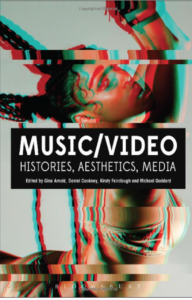
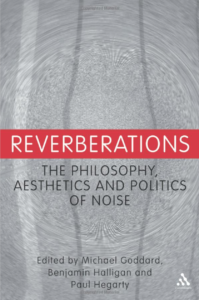
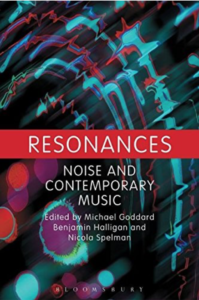
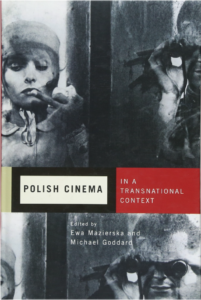
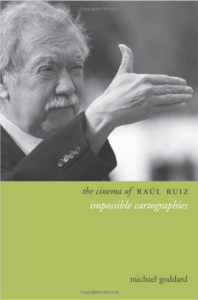
Thursday 27 May 2021
Aesthetics of Noise
*UPDATE* Sacha Golob unfortunately won’t be able to join us
but we are very lucky to have the two brilliant thinker-noisers:
Martina Raponi
Noise / Voice / Deafhood
&
Sonia de Jager
UN-:
Aphasia, Aberration, Ambiguity
Respondent: Cécile Malaspina
Registre here: https://bit.ly/ramponijagernoise
Sonia de Jager
UN-:
Aphasia, Aberration, Ambiguity
We often point to the undefinable, the unpredictable, the unframed as instances of noise, but what does that say about un-? During this presentation we will think about the etymology and cargo of un-; the experience of aphasia; the cognitive effects of the majority of words; as well as the logic of audiovisual illusions as vessels of noise. Perhaps unsurprisingly, we will think about noise as a linguistic placeholder category, one which points to a state where the mind puts its predictive capacities at rest in order to let spacetime be.
Sonia de Jager (Buenos Aires) is a doctoral researcher at Erasmus University, writing a thesis about the philosophy of artificial intelligence. De Jager also works at the Willem de Kooning Academie as an art theory tutor and runs the yearly music and philosophy event Regenerative Feedback.
https://www.metropolism.com/nl/features/37813_micro_art_initiatives_23_noiserr_regenerative_feedback
PhD page Erasmus University: https://www.eur.nl/people/sonia-de-jager
Regenerative Feedback NYC: https://issueprojectroom.org/program/regenerative-feedback-listening-and-its-emancipatory-potential
Regenerative Feedback WORM: https://worm.org/2021/02/02/news-17-4-2019-het-stimuleringsfonds-steunt-regenerative-feedback-2019/
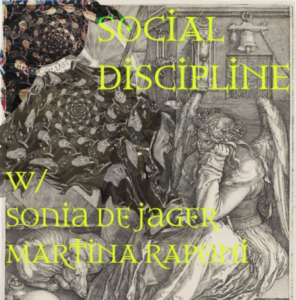
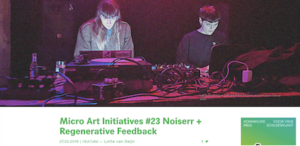
Martina Raponi
Noise / Voice / Deafhood
In this talk Martina Raponi will talk about her research – from the perspective of a CODA – that investigating Deafhood, Deaf voice(s), and Sign Languages in relation to technology through the lens of noise. From the noisy vibrotactility of existence to the disruptivity of the Deaf voice within ableist sonic establishments and the (im)possibility of Sign Language recognition using neural networks.
Martina Raponi is a writer and artist researching noise and complexity; she authored a book on noise, “Strategie del Rumore. Interferenze tra Arte Filosofia e Underground” (Milano, Auditorium Ed., 2015). Martina is the co-founder of Noiserr, an interdisciplinary research group focused on sound, active since 2017 in Amsterdam (Butcher’s Tears) and Rotterdam (WORM, in collaboration with Regenerative Feedback and for WORMxOpen City). Together with artist [M] Dudeck, Martina founded the Ansible Institute, a transitory speculative fiction laboratory. She is board member of the RC51 on Sociocybernetics at the ISA, and art theory tutor at the Willem de Kooning Academy.
Links:
Website: http://noiserr.xyz/
New Noises New Voices on Revista Música: https://www.revistas.usp.br/revistamusica/article/view/170779/161969
Cécile Malaspina is visiting research fellow at King’s College London and directeur de programme à l’étranger at the Collège International de Philosophie, Paris. She is the author of An Epistemology of Noise (Bloomsbury 2018) and principal translator of Gilbert Simondon, On the Mode of Existence of Technical Objects (Minnesota University Press 2017).
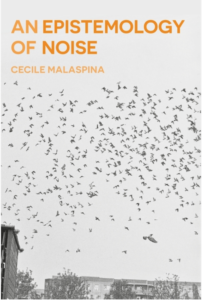
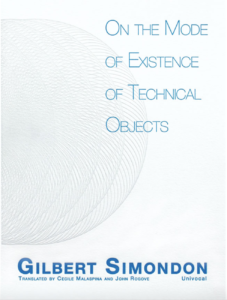
Thursday 29 April 2021
David Wallraf: A Concept of Impurity: Noise and the Acoustics of the Political
Respondent Miguel Prado
In this talk David Wallraf will argue for a concept of noise that is located between established theories using the term, be they acoustics, information theory, or musicology. Noise should be understood as the difference between these conceptions, or as an ‘original impurity’. This will be demonstrated by the difficulty of translating noise to another language. In German it disintegrates into four terms: Lärm (loud or annoying sound, both a concept used in acoustics and a derogatory term in quotidian discourse), Geräusch (the opposite of musical or meaningful sound in musicology and linguistics), Rauschen (as in white noise, touching both on acoustics, physics in general and the concept of noise in information theory) and Störung (both in the sense of signal disturbance in information theory and of annoyance in everyday sonic environments). The noise-concept aimed for lies in the betweenness of these terms, an inter that shows itself in metaphors, blurring, and a specific noisiness that – to a degree – affects all theories concerned with noise.
The consequences of this idea will be exemplified based on the acoustics of the political: what gets framed as noise in the context of political disagreement and what as a clear message? How do acoustic and/or musical metaphors affect ideas of the political? In the context of protests, is it possible to draw lines between law, order, and authority on one side and violence, chaos, and noise on the other? What are the acoustics of the riot and on which side is noise to be found?
David Wallraf is a noise artist, researcher and theorist based in Hamburg. He studied musicology at the University of Hamburg and time-based media at HFBK where he also earned his doctorate with a thesis on noise. The book Grenzen des Hörens – Noise und die Akustik des Politischen (Limits of Hearing – Noise and the Acoustics of the Political) will be published in January 2021. Besides being active as a noise musician he also curates the Noisexistance Festival at Kulturfabrik Kampnagel.
www.davidwallraf.com
https://davidwallraf.bandcamp.com/
https://www.mixcloud.com/David_Wallraf/
Miguel Prado is Associate Lecturer at the Philosophy Department of the University of the West of England. His work resides at the intersection of philosophy, sound art, science & technology. He responds to the technoscientific and social conditions around the notions of control, uncertainty and information theory. He studies the problems of the metascientific and ideological foundations of diverse projects of prediction and control of uncertainty. From algorithmic surveillance back to cybernetics and how these render noise “informationally heretical”.
https://miguelprado.bandcamp.com
Prado Casanova, M. (2020). Noise and synthetic biology: How to deal with stochasticity? NanoEthics, 14, 113-122. https://doi.org/10.1007/s11569-020-00366-4. Available from https://uwe-repository.worktribe.com/output/5973711
https://www.cafeoto.co.uk/shop/harrga-femmes-dinterieur/
Thursday 25 March 2021
Announcement: Very sadly Iain Hamilton Grant won’t be able to join us for our the seminar in March.
However, we are very fortunate that the amazing sound artists and philosophers Mattin and Miguel Prado agreed to intervene on Thursday 25.03.2021.
Mattin
Respondent Miguel Prado
Conclusions from Social Dissonance
This talk will go through the main conclusions drawn from my forthcoming book Social Dissonance. Social dissonance is a concept that I have developed in order to describe an structural form of cognitive dissonance between the way in which individuals in liberal democracies are supposed to have agency with rights such as freedom of speech and freedom of association, and how this agency is limited at the systemic level through being determined by ideology, technology and sociology-economic relations. This creates two contradictory values; as an individual you are empowered to act, to represent yourself and to show your abilities in a competitive society, but you are also experiencing an increasing sense of alienation and fragmentation that keeps expanding with no end in sight. This cognitive dissonance produces a mental form of noise, which this society expects you to negate or keep private.
To avoid this condition people look for individual solutions in order to find harmony, something which is impossible in capitalist society as its raison d’être is expansion based on unequal class relations. Precisely because of this ongoing structural inequality, the reified notion of selfhood produced in capitalist relations cannot be stable nor is guaranteed and the current disintegration of consensus reality is a proof of this. Finally I will show how I deal with social dissonance in my practice within the realm of aesthetics.
Mattin is an artist, musician and theorist working conceptually with noise and improvisation.
Through his practice he explores performative forms of estrangement as a way to deal with structural alienation interrogating our self-conception and sense of freedom under capitalist relations.
Mattin has exhibited and toured worldwide, performed in festivals such as Performa (NYC), No Fun (NYC), Club Trasmediale (Berlin) and Arika (Glasgow) and has over 100 releases in different labels worldwide. In 2017 he completed a PhD at the University of the Basque Country under the supervision of the philosopher Ray Brassier. Along with Anthony Iles he edited the book Noise & Capitalism (Kritika/Arteleku 2009). In 2012 CAC Brétigny and Tuamaturgia published Unconsitituted Praxis, a book collecting his writing plus interviews and reviews from performances. Both books are available online. Anthony Iles and Mattin are currently in the final stages of editing the volume What is To Be Done Under Real Subsumption? (forthcoming in Archive Books/Mute). Urbanomic will publish this year his book Social Dissonance. Mattin is also part of the bands Billy Bao and Regler and currently he is co-hosting with Miguel Prado the podcast Social Discipline. He took part in 2017 in documenta14 in Athens and Kassel.
www.mattin.org
Miguel Prado is Associate Lecturer at the Philosophy Department of the University of the West of England. His work resides at the intersection of philosophy, sound art, science & technology. He responds to the technoscientific and social conditions around the notions of control, uncertainty and information theory. He studies the problems of the metascientific and ideological foundations of diverse projects of prediction and control of uncertainty. From algorithmic surveillance back to cybernetics and how these render noise “informationally heretical”.
https://miguelprado.bandcamp.com
Prado Casanova, M. (2020). Noise and synthetic biology: How to deal with stochasticity? NanoEthics, 14, 113-122. https://doi.org/10.1007/s11569-020-00366-4. Available from https://uwe-repository.worktribe.com/output/5973711
https://www.cafeoto.co.uk/shop/harrga-femmes-dinterieur/
Wednesday 24 Feb 2021
Salomé Voegelin
Respondent Hugo Esquinca
This presentation considers noise in relation to intelligibility and inclusion. It considers it as sound, quiet or loud, which does not fit into a semantic, musical, artistic or cultural and political regime; and which thereby remains unrecognisable, unintelligible and without conventional value. Such noise approaches silence through its own muted voice and brings to discussion the very frames of legitimation and intelligibility that determine quality, meaning, sense and nonsense. Noise thus becomes an issue of representation and the way we look at things. How we approach them and what we expect. This is an issue of proximity and orientation. To loosely refer to Sara Ahmed on this point: the way our ears turn make some things noise and others a sound, and conversely our orientation silences what looks an/other way.
From here my contribution attempts to practice a deliberate embracing of noise as a path towards inclusivity and as a critique of judgment, providing a feminist and decolonial stance: to entrain ourselves conceptually and physically in noise, to listen out for what we do not know how to call, for what we can find no referent, and what annoys, disturbs and unsettles us; to purposefully step into its muted voice and break its silence.
The aim is not to bring noise to intelligibility, to transpose, translate or pitch shift; to turn down the volume or ventriloquise, but to come to hear its own voice and sense its absence.
Salomé Voegelin is an artist, writer and researcher engaged in listening as a socio-political practice of sound. Her work and writing deal with sound, the world sound makes: the aesthetic, social and political realities that are hidden by the persuasiveness of a visual point of view. She writes essays, books and text-scores for performance and publication. Her latest book The Political Possibility of Sound, Bloomsbury 2018, articulates a politics that includes creativity and invention and imagines transformation and collaboration as the basis of our living together. Voegelin’s practice engages in participatory, collective and communal approaches. She co-convenes, with Mark Peter Wright, the regular cross-disciplinary listening and sound making event Points of Listening www.pointsoflistening.wordpress.com, and uncurates curatorial conventions through performance, questioning the history and economy of the visual display. Voegelin is a Professor of Sound at the London College of Communication, University of the Arts London, and currently represents the Professorship in Soundstudies at the University of Fine Arts Braunschweig. She is the PI (Principle Investigator) of the UK research council funded project Listening across Disciplines II www.listeningacrossdisciplines.net
www.salomevoegelin.net
@soundwords_sv
Hugo Esquinca is an instigator in Audio Electronics and Acoustic Interventions.
His research-as-intervention/intervention-as-research in sound focuses on exploring different degrees of exposure to erratic processing techniques, indeterminate occurrences, spectral de-gradation, abrupt irritation, the potential of involuntary modifications, opaque functioning and excessive levels of amplification. His work has been presented in different contexts such as Stedelijk Museum (Amsterdam), National Centre for Contemporary Arts NCCA (Moscow), Fondazione Antonio Ratti (Como), Ujazdowski Castle for Contemporary Arts (Warsaw), Ploschad MIRA for Modern Art – Siberia (Krasnoyarsk), A4 (Bratislava), Goethe Institut (Athens), MAYHEM (Copenhagen), Aalto University (Helsinki), BEARS (Osaka), Haus der Kulturen der Welt and Berghain (Berlin). He is part of Yuk Hui’s Research Network for Philosophy and Technology. He collaborates with Mario De Vega, Russell Haswell and Audrey Chen.
DEKJ.ORG
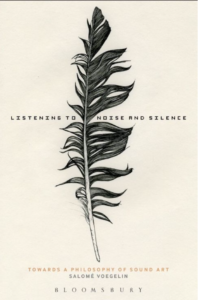
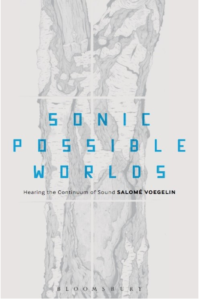
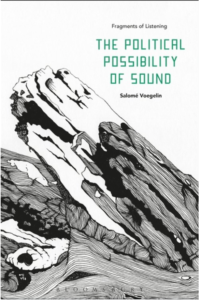
Thursday 26 Nov 2020
Patrick ffrench: Informe / Information: The Noise of Georges Bataille
Respondent: Giovanni Menegalle
Patrick ffrench: Informe / Information: The Noise of Georges Bataille*
Georges Bataille’s notion of the informe, usually translated as ‘formlessness’, proposes a principle of absolute improbability which radically ungrounds and destabilises normative conceptions of development and evolution, particularly as concerns the form of the human body. In his brief entry under the title ‘informe’ in the ‘Critical Dictionary’ of the heterodox periodical Documents, Bataille writes that ‘for academics to be happy, the universe has to take shape’ and that ‘all of philosophy has no other purpose; it is a matter of giving a frock-coat to what is, a mathematical frock-coat’. If one might conceive of the post-war elaboration of ‘information theory’, and its pervasive influence on French structuralism, as just such a frock-coat, then Bataille’s hypothesis that ‘the universe is only formless and resembles nothing’ appears as a performative noise, which nevertheless generates its own aesthetics.
Patrick ffrench is Professor of French and Vice Dean (Research) at King’s College. He wrote his phd on the French literary and theoretical journal Tel Quel, in 1993, under the supervision of Professor Annette Lavers at the University College London. As a British Academy Postdoctoral Fellow at University College he worked on Georges Bataille and 20th-century French intellectual history, before moving to King’s College London in 1999. The four books that have resulted from this work are: The Time of Theory: A History of Tel Quel (1996); The Cut: reading Bataille’s Story of the Eye (2000); After Bataille: Sacrifice, Exposure, Community (2007) and, co-edited and translated with Roland-François Lack, The Tel Quel Reader (2003). Patrick’s research ranges across French literature, philosophy and culture of the 20th-century, with a particular focus on critical theory, literature and film. He has written on Maurice Blanchot, Roland Barthes, Jean-Luc Nancy, Gilles Deleuze and Felix Guattari. More recently his work is about film philosophy and film theory; his two most recent books focus on resonances of a cinematographic imaginary in Proust’s A la recherche du temps perdu (Thinking Cinema with Proust, Legenda, 2018) and cinema in the work of Roland Barthes (Roland Barthes and Film, Bloomsbury, 2019). He is currently developing a funding application for a project on post-war French thought and its relation to fields such as architecture, pedagogy and psychiatry, called The Social Life of Concepts. A longer term project is a book on spatial figures in critical theory.
Giovanni Menegalle is British Academy Research Fellow in the Department of French at King’s College London. He completed his PhD on Derrida and phenomenology at the University of Cambridge. He is currently working on the reception of theories of information and computation in post-war French philosophy and on a broader monograph on the theme of technology in French phenomenology.
Background Reading
- Georges Bataille’s ‘definition’ of informe.
- Roland Barthes, ‘Les Sorties du texte’ in Le Bruissement de la langue: Essais critiques 4 (Paris: Seuil, 1984) / ‘The Outcomes of the Text’ in The Rustle of Language, trans. Richard Howard (Berkely and Los Angeles: University of California Press, 1989)
- Patrick ffrench, ‘Documents in the 1970s: Bataille, Barthes and “Le gros orteil”‘, in Papers or Surrealism 7 (2007).
Thursday 29 Oct 2020
Mark Coté: Calculating Infinitesimals: Machine Learning from Lucretius to Deleuze and Simondon
Respondent Cécile Malaspina
This session will consider the emergent qualities of noise from a microscopic perspective in the theory and practice of calculation. Beginning with the early atomism of Lucretius to the Deleuzian push against the limits of finite representation to Simondon’s regard of clinamen as an ontogenetic force, noise will be conceptualised via the challenges of its measure; that is, in terms of rendering its generative capacities actionable. But rather than consider Shannon’s entropy in the context of cybernetics and information theory, we will ask what noise means in our current age of datafication and machine learning, that is, the ways in which the finely-granulated noisy data of our life-world are rendered actionable by the automated decision-making processes?
Mark Coté
Mark Coté is a leading researcher in critical digital methods focusing on the social, cultural, and political-economic dimensions of big data, algorithms and machine learning. He is senior lecturer in digital Cultures and Director of the MA in Big Data, Culture and Society. He combines his research in computer science with a strong basis in philosophy. His research on Foucault and the Italian post-operaismo/ autonomist movement led him to develop the conceptual framework of ‘immaterial labour 2.0’. Widely cited, this work looked at the merging of social and economic relations in social media. Mark has been working on an ‘ontology of the digital human’. He has been awarded an impressive array of research grants, notably the AHRC funded project on ‘big social data’. True to his Foucaultian credentials, this project focuses on the nexus of power-knowledge relations and how we can turn around the democratic deficit of individuals in the use and abuse of big data, by turning big data into a community resource.
Mark Coté is a co-organiser of the Aesthetics of Noise seminar.
Cécile Malaspina is visiting research fellow at King’s College London and directeur de programme à l’étranger at the Collège International de Philosophie, Paris. She is the author of An Epistemology of Noise (Bloomsbury 2018) and principal translator of Gilbert Simondon, On the Mode of Existence of Technical Objects (Minnesota University Press 2017). She is the organiser of the Aesthtics of Noise seminar for the CIPh at King’s College London.

